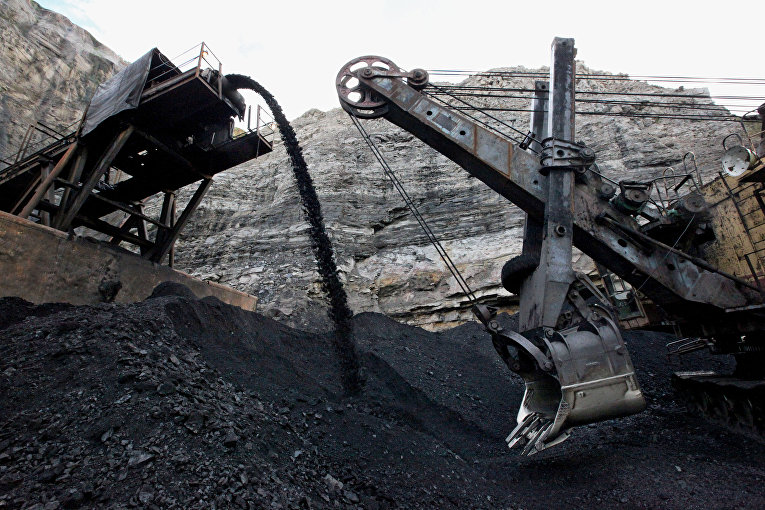MOSCOW, March 21 – RAPSI. Former senior officials from the administration of the Kuzbass region, employees of Russia's Investigative Committee regional branch go on trial at the Central Kemerovo city court along with businessman Alexander Shchukin and his lawyer Gennady Vernigor. All of them face criminal charges of participating in an extortion of a controlling stake in Inskoy open-cut coal mine while there is also an episode linked to a bribe to the head of the Investigative Committee office in the Kemerovo region.
Criminal charges have been brought against the defendants under Article 163 of the Russian Criminal Code outlining punishment for the large-scale extortion.
Alexander Danilchenko and Aleksey Ivanov, then Deputy Governors of the Kemerovo region, in summer 2016 attempted to seize control over Inskoy mine with the help of Sergey Kalinkin, then chief of regional department of the Investigative Committee, and his alleged accomplices, with businessman Shchukin among them, prosecutors claim.
Interestingly, prosecutors estimate a controlling stake of the mine to be worth more than 2 billion rubles ($31 million at the current exchange rate) while lawyers for the defendants claim that it cost nothing due to its multibillion-ruble debts.
Former officers of the Investigative Committee, including Kalinkin, have been charged with abuse of power.
All the defendants plead not guilty. Shchukin during the hearing in court admitted that he initially agreed to achieve the controlling stake in the mine and to find a way out of the financial crisis, but later declined to take the stake, which constitutes a partial admission of guilt, according to prosecutors.
At the end of 2018, the court started to examine witnesses, including employees of Inskoy mine, officers of the Investigative Committee, and relatives of the defendants. Notably, the allegations that Kalinkin had been protecting Shchukin and his business, as well as the business model of the Inskoy mine were scrutinized.
Witnesses said that Inskoy mine experienced critical financial problems due to the fact that it had not been operating for more than a year because of an engineering error that occurred in summer 2016. Debts of the mine were estimated by witnesses at about 5 billion rubles ($77.3 million at the current exchange rate) while salary arrears reached about 60 million rubles (nearly $1 million). As a result, miners refused to work, whereas the equipment at the mine fell short of the labor protection requirements. Danilchenko and Ivanov were authorized to deal with the situation along with E. Troitskaya, the official of the administration of the region.
According to mass media, Aman Tuleyev, then Governor of the Kemerovo region, personally asked Shchukin to take part in in the resolution of the crisis as it might have led to an escalation of social tensions in the region. Although Shchukin had no connections with the mine, he agreed to help and transferred not less than 100 million rubles (about $1.5 million) to the “Miloserdiye” charity foundation, and over 23 million rubles ($356,000) of the sum were used to pay the arrears.
Meanwhile, Anton Tsygankov, who was indicated to be the owner of the mine, was arrested for an alleged abuse of authority resulting in damages and brought to the premises of the Investigative Committee. There he gave away 51% of shares under pressure, prosecutors claim.
Shchukin was asked to run the mine and later offered the stake. He accepted the offer, and a power of attorney with regard to the transfer of the stake was issued.
Shchukin thereafter went to Moscow where he met with the key beneficiary of the mine. They reached an agreement to jointly manage the business. However, next day Shchukin decided to turn down the offer, and the transfer of the stake was never completed.
As a result, Shchukin got under pressure of the administration of the Kemerovo region while representatives of the owner of the stake did their best to follow all the arrangements, according to the lawyers acting for the defendants.
A criminal case over extortion was opened in November 2016. Almost all the defendants are currently under house arrest. Kalinkin is the only one who was put in a pre-trial detention.
The defendants raised no claims over the course of the investigation or trial saying the work is performed in a correct and professional manner.
In late February 2019, Andrey Gaidin, who heads the management company that runs the mine, testified in court as a witness. He said that the mine had been managed in the ordinary course while the problems linked to the payment arrears were dealt with in line with the agreements. As a matter of fact, Gaidin noted that Shchukin agreed to take part in the restoration of the mine performance under pressure.
Maxim Sidorov, who had been running Inskoy mine for a few days until Shchukin refused to accept the stake offer, also appeared in court as a witness. Sidorov testified that serious safety breaches were revealed at the mine that could result in great harm to equipment and workers’ health. Besides, the equipment was significantly worn out and no further mining of the coal was possible. Nevertheless, just in a few days Sidorov was able to draft a plan to solve the problems and organize certain works enabling further mining. Sidorov said that Gramoteinskaya mine, where he was then chief engineering officer, got under thorough inspection of public authorities after Shchukin had declined to take control of Inskoy mine. Every such inspection resulted in mining operations suspension.
The defendants in this high-profile case face a maximum sentence of 15 years in prison. Their lawyers claim that the indictment should be revised on the basis of the estimated value of the controlling stake of the mine. Besides, they insist on an expert assessment of the cost of the “object of extortion” as it was assessed by investigators by the book value of the property of the mine. In case the indictment is revised the defendants would face up to 7 years in prison.



